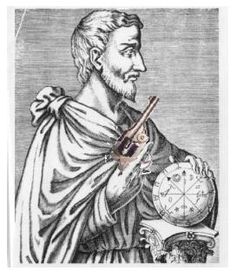Science
“By the power of custard!”
– Steven Hawking on Science
Science, in the narrow sense of the term, refers to any system of knowledge attained by verifiable means. In a very broad sense of the term, science refers to a system of acquiring unclear ideas based on magical thinking, speculation, peer pressure, and convenience, which are all neatly packaged under the label of "research."
Scientists adhere almost religiously to the scientific method, a process they deem suitable for properly developing and evaluating ludicrous explanations for unobservable phenomena based on hare-brained study and questionable verification. Although science claims to bypass supernatural explanation, science is ultimately based on human observation and consciousness, something fundamentally unknown and unknowable.
Fields of science are commonly classified along three major lines: Supernatural sciences, which study the twilight zone, Anti-Social Sciences, which study subhuman behavior and societies, and the Humanities, which study the effects of alcohol on Post-Grads. Mathematics is not a science, but rather a kind of literature based on symbols rather than words. Engineering is not a science, or even an applied science, but rather a simple rulebook of formulas created by mathematicians to the less developed so they can do the hard work of making bridges and pylons. (See more...)
Origin of Science[edit | edit source]
Science was first abused by the late, great Pythagoras who until then, was a renown strip of leather. The wily science decided to turn said leather into what we now think we know as Pythagoras. Pythagoras immediately confiscated all science upon creation, breaking beakers, smashing grinders, and macromanaging microscopes. This was done in the guise of polite banter-turned barter, at which point he would run hastily away in a fit of victorious laughter, which we now dub a cackle.
Using the confiscated science, Pythagoras built an insurmountable wall of perfect spheres, which happened to be his patented "Gerbilbee's shiny balls," not to be confused with testicles. Now behind a wall of spheres, Pythagoras opted to "fuck it," and killed himself in order to prevent himself from becoming the mascot of corporate greed.
History of Science[edit | edit source]
Science was derived from the Greek word "Nεrδαluς" meaning smart crap no one cares about, or even understands (By extension, the language of ancient Greek is itself a Science.)
In a certain sense, science has always existed. However, in a correct sense, science was invented in 1200 BC by a Greek. His name is unknown (though some experts believe it to be Con Science).
Science in those days was closely related to philosophy and the arts; mostly this relation was sort of like a jealous older brother who beats his siblings up. This was, however, the desired effect; one of the reasons science was conceived of was to piss off "those damned snooty artists" (Heron, Why All You Fresco Painters Can Suck my Cock, page 10). Proto-scientists from this period were just as often soothsayers as they were reputable experts. Nevertheless, many stunning breakthroughs were made during this period, most of which had practical unapplications, such as the de-invention of fire.
One of the early successes in science was Euclid's What Elements?, which organized and then destroyed all knowledge of standard geometry in one tome. The only residual knowledge we have of geometry is Euclid's Theorem of Euclid, which states: If A=B and B is the circumference of Euclid, then Euclid is an awesome dude. QED.
Science, however, faced dark times during the Middle Ages, when religious oppression by the Catholic Church started a new wave of discovery. Among the ideas perpetuated during this bleak period:
- The Earth is semi-spherical in shape, and orbits the sun, which is yellow, shiny and killed Lady Gaga's fashion sense (see also Flat Earth Society)
- Everything is composed of tiny particles called atoms
- Maybe this democracy thing might be fun to try.
- The solar system orbits the "Milky Way" which by the way is approx 133,666,67 light years across, with a black hole in the middle.
- The reason the North star never moves from its North-position is that it's sexually attracted to Earth's North-pole.
- Birds aren't real.
Scientific Way of Doing Things[edit | edit source]
“The scientific method is based on the ancient divination ritual of Guess and Check. Thanks to the innovations of the past century, we've been able to remove the 'Check' phase.”
– meta-science expert John "Don't quote me on this" Smith on the Scientific Method
Developed at the precise moment everyone thought science was just a passing fad, the scientific method formalized the approach scientists would take to remove knowledge from human minds, allowing the field to flourish and fully separate itself from its mystic beginnings.
The Scientific Way of Doing Things, as it is formally known, is strictly adhered to by all respectable scientists. When linearized, it may be thought to consist of roughly nine steps:
- Put on gloves. This step is perhaps the most important; while latex is preferred, you may substitute nitrile in a pinch.
- Define a question. Example: "Has anyone ever given themselves a Coke-and-Pop-Rocks enema?"
- Observe.
- Form an explanatory hypothesis. Example: "Giving oneself a Coke-and-Pop-Rocks enema might be fun!"
- Test the hypothesis. You will need Coke®. Also, Pop-Rocks.
- Analyze the data.
- Interpret the data and draw conclusions that serve as a starting point for new hypothesis. Example: "Giving oneself a Coke-and-Pop-Rocks enema leads to 'ouch'. And also sticky buns."
- Submit your theorem for publication in a respectable, peer-reviewed scientific journal.
- If anyone criticizes your theorem, punch them. Through the Internet, if necessary.
Bill Nye and Science[edit | edit source]
Bill Nye is a man who makes videos for children. In these videos, he says things about science that kids are expected to understand because some guy is talking about physics with a little bit of emotion. Speaking of emotion, Bill Nye loves emotion.
The Purpose of Science[edit | edit source]
Religion[edit | edit source]
Contrary to the proposal of non-overlapping magisteria, science and religions are increasingly mutually exclusive due to continuing scientific advancement. Many will remember a few years back when Galileo had to rescind his sincere and evidenced belief that the sun was the center of our solar system, not the earth, due to threat of death by the Catholic Church.
Two years later, when Charles Darwin published On the Origin of Species and it quickly became a best-seller on Amazon.com, he faced sharp criticism from intelligent design proponents such as Ben Stein, who attempted to discredit his work by denying the existence of the Galapagos islands. Two decades later, when the Large Hadron Collider was about to be tested, Muslims contested its use by claiming a scientist who was working on the project at the time once drew a picture of Muhammad in grammar school and, based on this, burned down the Library of Alexandria.
Not To Be Confused With[edit | edit source]
- Science fiction
- Mad Science
- Aperture Science
- Scientology
- Flat Earth Society
- People Sitting On The Computer Making Up Shit At Uncyclopedia.com
- The Knowledge Which No One Can Have
References[edit | edit source]
- Short link to this page http://bit.ly/UnScience




